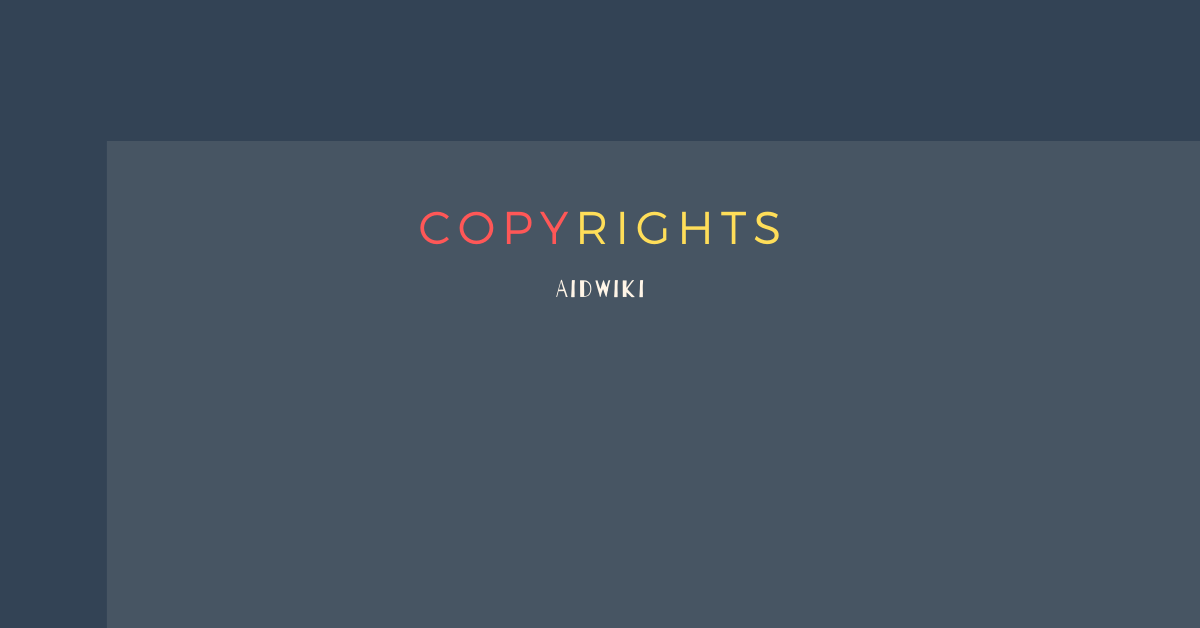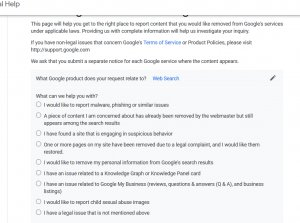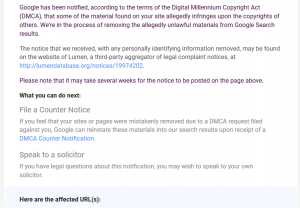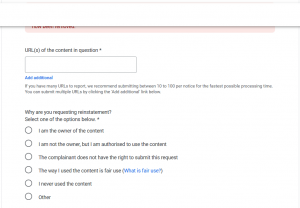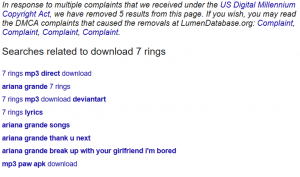- 1. What are copyright claims (DMCA Notifications)?
- 2. Who does copyright reports?
- 3. How to know if someone accuses me of copyrights violation?
- 4. Handling copyright issues
- 5. DMCA Counter Notification
- 6. Policy Center on Adsense
- 7. SEO Impact after copyright claims
- 8. DMCA Strikes from online services
fact
What are copyright claims (DMCA Notifications)?
Google protects content owners and provides functionality for removing legal content. Practically, Google supposes leaving claims from everyone. That creates bunches infringement requests per day. According to SearchEngineLand, Google proceeds 7 million DMCA notices per week or about a million per day. Thus, the giant as Google uses subcontractors like Lumen as utility helping the process, analyzing the received complaints and so on.
What is the DMCA (Digital Millennium Copyright Act)?
The DMCA protects creative works on the internet and contains the legal foundation for rights management in the digital world. It protects both copyright owners and internet service providers (ISP), otherwise known as online service providers (OSP). An object of claims could be a photo, musical composition, video clips, even text.
Copyright Owner is the company or individual (or agent representing a company/individual) that create or own particular content. Actually, everyone could claim that is the holder of the rights and when DMCA takedown notice occurred, both sides should prove their identity.
On the other side - a website or potentially - person or company violates copyrights. Of course, not all complaints are legitimate. That way, you have to try, as a website owner, to provide solid argue that you did not steel content.
fact
Who does copyright reports?
Source:
Removing Content from Google is a pretty simple process and could be accomplished by anyone. As you can see in the screenshot above, there is a wizard form (application) that asking about the type of infringement. Bad thing is, once sent, it automatically removes your website's page from the search engine result, till you prove your innocence.
Note: All claims have legal value and could reach to the court.
Claims from competitors
It's not rare met, competitors of a particular website to send claims for injuring copyrights. As we mentioned above, this blocks your content almost immediately. Lumen's work is to determine if the claim is justified. The request should be sent by the copyright owner or authorized person/company to act on the copyright owner’s behalf. Later, in the article, you'll see in most cases the claimer is not authorized.
fact
How to know if someone accuses me of copyrights violation?
Join your site to Google Webmaster Tools.
It's the first platform that will send you a notification. Take a look at the screenshot above. It reports to you that someone sent a DMCA notice against pages from your website. Yes, with a single complaint, they can include a few URLs and domains.
Clicking on the link containing Lumen as a domain, you can review the full notice, as well as all domains that the owner or representative believes, hurt their rights.
Next, the claim will appear on Google Adsense in a few hours. Go to 'Policy Center'.
fact
Handling copyright issues
Determine your guilt and answer the questions below:
1) Am I violate DMCA with the content I've published?
2) May I prove I'm the content owner or have rights to use the material I've published on my website?
Next, think about what is your content:
- Downloading movies and music without proper payment for use
- Recording movies in a theater
- Using others’ photographs for a blog without permission
- Copying software code without giving proper credit
- Creating videos with unlicensed music clips
- Copying books, blogs or podcasts without permission
- Anything where you are copying someone else’s original work without an agreement
Even you have tried to blame search engines with words such as 'download' or 'watch video free' (black-hat techniques), and no actual download exists, that violates Google Terms of Use. But that's not the case. You can avoid subsequently notices, cleaning your website with words that make you a suspect. Most complaints come without in-deep research on the claimer side. They navigate and put terms on the search bar like 'song download mp3' and if your website appears in the top 10 (for example), then they add it to the list with copyright violators.
Is it worth?
If you have actual downloading or links to external websites that is a violation and nothing can do.
And the last: did you get content from the internet?
"I found it, didn't say it was copyrighted"
Sorry, this does not count! But still, it can impersonate the content as fair-used.
Measuring Fair Use: The Four Factors
(1) the purpose and character of your usage
(2) the nature of the copyrighted work
(3) the amount and substantiality of the portion taken, and
(4) the effect of the use upon the potential market.
If would like to pass through DMCA notice and recover your pages in the search engine results (SERP):
(1) consider your usage as fair-use and wait for a response from the authority (see below)
(2) determine the notice as groundless since you did not break any rights (even if you violate Google Search Terms)
Don't contact the owner of the content or the sender of the DMCA notice. They could be different persons/companies and this will complicate the situation. Also, if you violate copyright that is not appropriate.
fact
DMCA Counter Notification
DMCA Counter-Notification is a legal way to dispute sent copyright claims.
Filling the form declare that your page(s) did not infringe anyone's rights.
How does it work?
(1) Send a counter-notification with the correct data.
(2) Receiving an automatic email from Google Removal Center.
(3) Google contacts you (in a few days) and insists to confirm your address required by law.
(4) Google contacts the claimer with the attached counter-notification sent by you.
(5) Google waits for an answer from the complainant. After 10 days, if the issuer does not reply or withdraw the notice, your content will be recovered (reinstated). Otherwise, the complainant probably initiates a court action against you.
Don't try to send a fake counter-notification because Google keeps your data (IP, mail, etc).
Don't change the page that violates copyrights especially if you plan to send a counter notification. Google could revert the state of the page.
fact
Policy Center on Adsense
In case your website serves ads from Adsense, probably the violation will appear soon.
This kind of violation must be fixed.
(1) Wait till Google reinstate the page (it could take ten days), if your counter-notification has been submitted and the complainant does not argue.
(2) Remove ads and every piece of Adsense code loaded on the page that violates their terms. Next, you must exclude the page on Adsense:
-
Go To 'Ads' (left menu)
-
Navigate to the site (right side)
-
Click over 'Edit' icon
-
Manage Page Exclusions
-
Add Exclusion (this page only)
-
Save
The violation will disappear after two-three days.
Note: if you choose to wait, Adsense could decrease the overall revenue, especially if you have other violations. Think about, why you have to wait at all? No matter of you, the ads will be disabled during Google investigation and counter-notification acceptance. Don't risk the revenue of the site and remove ads as soon as the copyright infringement notification arrives.
fact
SEO Impact after copyright claims
Does copyright claims impact negatively to the SERP ranking?
It does. When the page has been filtered by Google Search, you'll lose the traffic that came from it. If the page is not worth (with a small number of searches or clicks), then it's not a problem.
Probably your domain ain't suffer and not losing a ranking. Google knows that most complaints are not representative.
Note: If your domain receives too many copyright notices could drop into SERP as overall.
tip
DMCA Strikes from online services
Hosting companies and service providers have a strike system. It allows you a certain number of violations before your subscription/hosting/service being penalized.
Why do hostings care about DMCA complaints?
Most likely, they have partnerships with other services like network providers. Think about if those network providers reject the main functionalities to the hosting company? They could lose their business.
That's the reason you have to consider copyright infringements as a major issue. It's not only about Google ranking, but it could also compromise the whole website starting with the hosting.
DMCA-ignoring hosting companies
Theoretically, they exist. These companies will claim that they ignore DMCA complaints but also have very unpleasant support if someone reply to any injuries at all. They know you're desperate and have no choice to move your DMCA not-complaint websites on the other server.
So, consider the risks.
We recommend you Shinjiru. Their budget hosting is DMCA-ignored, and it's an ideal solution for websites that have been shut down due to DMCA claims. Shinjiru provides offshore hosting in the following countries: Malaysia, Bulgaria, Holland, Hong Kong, Lithuania, Luxembourg, Russia, Singapore. With that amount of options, you can point to your website where it's most comfortable for you. The hosting starting at $3.95 per month.
In fact, they have numerous hosting plans - WordPress shared hosting, VPS Dedicated Servers, and many more.
Go To Shinjiru.
Frequently Asked Questions
Why Google accepts request from everyone?
Because as a giant trademark, Google should take care of every possible violation of copyrights. DMCA is an American law and failure to manage legal notices could be accepted as breaking the law and brings financial losses for Google.
Is the copyright claim removed from Lumen database?
If your website has been listed on a copyright claim document, even if Google reinstates your content, your website will stay linked in the copyright documents placed on Lumen.
